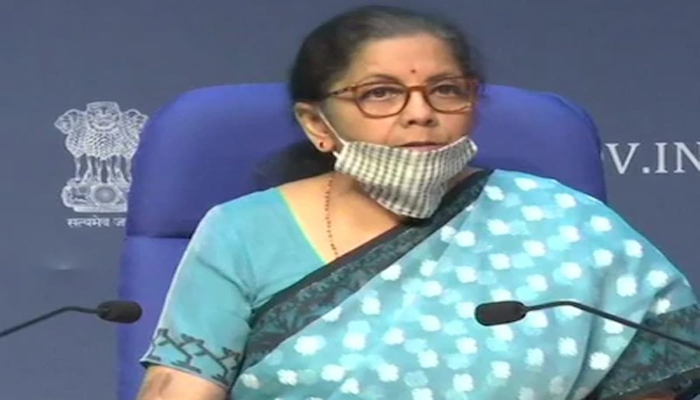TRENDING TAGS :
High petrol, diesel prices burden on consumers: FM Nirmala Sitharaman
Stating that both states and the Centre draw revenue out of taxes levied on petrol and diesel, she said 41 per cent of the tax collections made by the Centre go to the states.
Finance Minister Nirmala Sitharaman on Friday acknowledged that consumers have a case for petrol and diesel prices to be brought down but said a reduction in taxes to make that happen should be a joint call of the central and state governments.
As much as 60 per cent of the retail price of petrol, which has shot above Rs 100-mark in some places in Rajasthan, Madhya Pradesh and Maharashtra and is at an all-time high elsewhere in the country, is made up of central and state taxes. Taxes make up for about 56 per cent of the record high diesel rates.
FM Sitharaman:
Sitharaman, who had increased central excise duty on petrol and diesel by a record margin last year to mop up gains arising from international oil prices plunging to a two-decade low, remained non-committal on taking the first step to cut central taxes to give relief to consumers.
For consumers, “there is enough case to say that prices should be down, its a burden,” she said while interacting with journalists at IWPC.
While the burden on the consumers is “understood”, the pricing is a vexatious issue, she said.
“That’s where I use the word ‘dharamsankat’,” she said. “It is a question which I would like states and the Centre to talk about because it’s not just the Centre which has duties on petroleum products, it also has the states charging.”
Tax cut should be joint call of Centre, states
Stating that both states and the Centre draw revenue out of taxes levied on petrol and diesel, she said 41 per cent of the tax collections made by the Centre go to the states.
“So there is an issue which is layered and as a result that has to be a matter ideally for the Centre and the states to talk about,” she added.
On the issue of bringing petrol and diesel under the Goods and Services Tax (GST) regime, which will end the cascading impact of taxes and bring uniformity, the finance minister said the call has to be taken by the GST Council, the apex decision making body of the indirect tax regime.
Currently, the central government levies a fixed rate of excise duty while states levy different rates of VAT. Under the GST, the two would merge and bring uniformity, solving the problem of fuel rates being higher in states with higher VAT.
“Whenever the GST Council decides to take up this issue, they are well within their interest to take it up and discuss. It’s a call which the Council has to take,” she said.
FM:
Asked if the Centre will take such a proposal to the Council in the next meeting likely this month, she said a call will be taken “closer to the date of the Council meeting.”
Sitharaman raised excise duty by Rs 13 and Rs 16 per litre on petrol and diesel, respectively, between March 2020 and May 2020 and it now accounts for more than one-third of the Rs 91.17 a litre price of petrol in Delhi and 40 per cent of Rs 81.47 per litre rate of diesel.
Diesel will come at Rs 68 a litre and the revenue loss for the Centre and states will be only Rs 1 lakh crore or 0.4 per cent of GDP, according to the calculation by the economists made under the assumption of global crude prices at USD 60 a barrel and exchange rate at Rs 73 per dollar.
ALSO READ: Coronavirus: After Maharashtra and Kerala, Cases increasing in Punjab
Stay tuned with the newstrack to get fastest updates. Click @englishnewstrack to follow us on Facebook and @newstrackmedia to follow on Twitter.



